Navigating the Extrusion Welder Market: Understanding Technology, Applications, and Extrusion Welder Price
In the intricate world of thermoplastic fabrication, precision and durability are paramount, driving the demand for advanced welding solutions like the extrusion welder. These specialized tools are indispensable for joining large plastic components, offering superior strength and integrity compared to conventional methods such as hot air welding or solvent bonding. The market for extrusion welders is experiencing robust growth, fueled by expanding applications in critical sectors ranging from petrochemical and mining to civil engineering and municipal water management. Industry trends indicate a consistent push towards more automated, energy-efficient, and robust machines capable of handling a broader spectrum of polymer types, including high-density polyethylene (HDPE), polypropylene (PP), and polyvinylidene fluoride (PVDF). Understanding the nuanced factors that influence extrusion welder price is crucial for B2B procurement specialists and technical decision-makers. This article delves deep into the technology, operational benefits, and cost considerations associated with these vital pieces of equipment, ensuring informed investment choices that align with project specifications and long-term operational efficiency. We will explore how specific technical parameters, manufacturing precision, and after-sales support collectively contribute to the overall value proposition, moving beyond a simple sticker price to a total cost of ownership analysis.
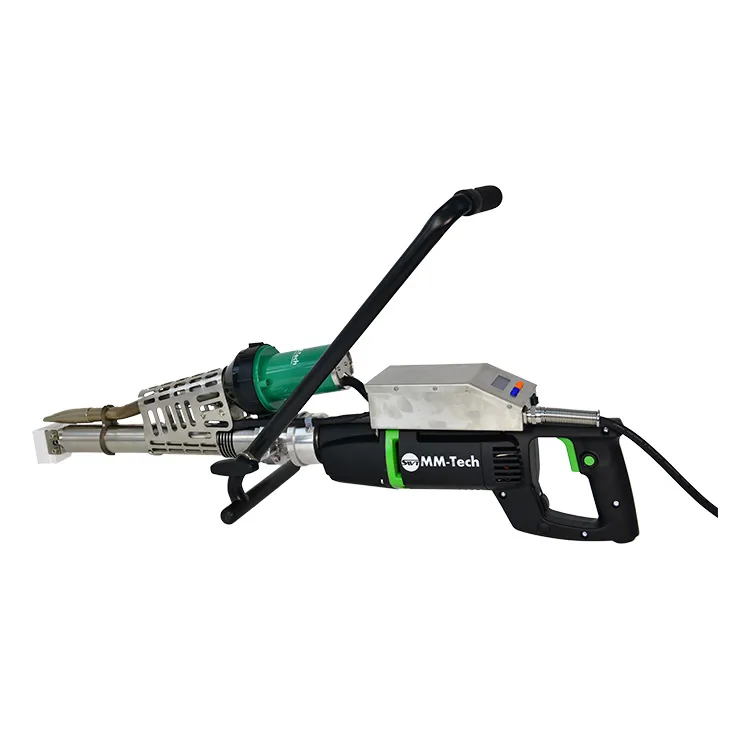
The Extrusion Welding Process: Precision Engineering and Performance
Extrusion welding is a sophisticated thermoplastic joining process that involves heating and extruding a plastic filler material (welding rod) onto the surfaces to be joined, simultaneously pre-heating the base material to ensure a molecular bond. This process is particularly effective for thick-walled plastic structures, producing welds with exceptional strength and chemical resistance. The performance and longevity of an extrusion welder are directly influenced by its manufacturing process and the quality of its components. High-grade welders typically feature precision-machined components, often manufactured using advanced CNC (Computer Numerical Control) machining for critical parts like the extrusion screw and barrel, ensuring optimal material flow and consistent weld output. Key materials include specialized wear-resistant alloys for the extrusion head, robust impact-resistant polymers for the housing, and high-temperature resistant heating elements for consistent pre-heating and melting. Manufacturers adhere to stringent international standards such as ISO 9001 for quality management and ISO 12176-3 for specific thermoplastic welding equipment, guaranteeing reliability and safety. Furthermore, individual components often undergo rigorous non-destructive testing, including ultrasonic inspection for internal flaws and precise dimensional analysis, ensuring that each unit meets specified tolerances. This meticulous manufacturing approach directly contributes to the machine’s extended service life, often exceeding 10,000 operational hours with proper maintenance, and influences the overall extrusion welder price.

The typical application of an extruder welder in industries like petrochemical and mining involves the fabrication and repair of large-diameter pipelines, storage tanks, and geomembranes used for containment. For instance, in municipal water supply and drainage systems, HDPE pipes are commonly joined using this method due to its ability to create leak-proof, corrosion-resistant connections that are impervious to chemical degradation from transported fluids or corrosive soil conditions. The energy-saving advantage stems from the highly localized and efficient heating of the material, minimizing heat loss and reducing overall power consumption compared to less controlled heating methods. Anti-corrosion properties are inherent in the welded thermoplastics themselves; unlike metal welds that can rust or corrode, plastic welds maintain the chemical inertness of the base material. In environmental applications, like landfill lining or water reservoir construction, the impermeable and durable nature of extrusion welds is critical for preventing leakage and protecting groundwater. This robust performance, combined with compliance with international standards like ASTM D2657 (for butt fusion of polyolefin pipe and fittings) and D3222 (for butt fusion of thermoplastic pipe and fittings for specific applications), positions high-quality extrusion welders as indispensable tools that deliver long-term value and operational safety, significantly impacting the considerations around extrusion welder price.
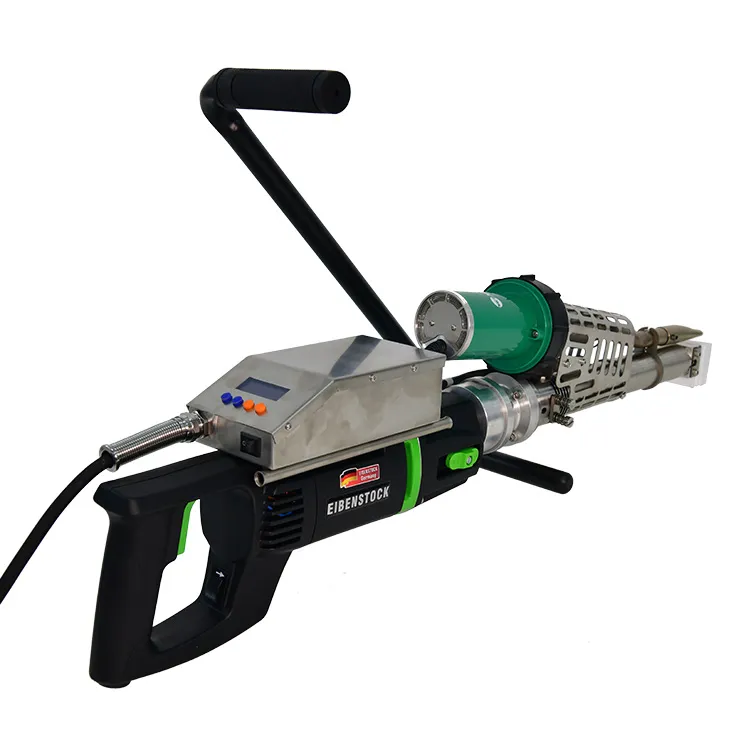
Introducing the SWT-NS630A Hand Extrusion Welder: Specifications and Features
The SWT-NS630A Hand Extrusion Welder exemplifies the blend of portability, power, and precision required for modern thermoplastic fabrication. Designed for versatility across diverse applications, this unit boasts an extrusion output that ensures efficient and strong welds on a variety of polymer sheets and pipes. Its ergonomic design and balanced weight distribution contribute to reduced operator fatigue during prolonged use, a crucial factor in large-scale projects. The intelligent control system, often featuring digital temperature displays for both pre-heating and extrusion, allows for precise adjustment of welding parameters, ensuring consistent weld quality regardless of ambient conditions or material variations. Key technical parameters include a high-power drive motor for consistent extrusion speed, an optimized heating system for rapid warm-up times, and a robust gear reduction mechanism for reliable torque delivery. This attention to detail in engineering not only enhances performance but also contributes to the longevity and reliability of the unit, directly influencing the long-term cost-effectiveness and perceived extrusion welder price for such a capable device. Its adaptability to various welding tasks, from geomembrane lining to fabricating large plastic tanks, makes it a valuable asset for contractors and industrial facilities.
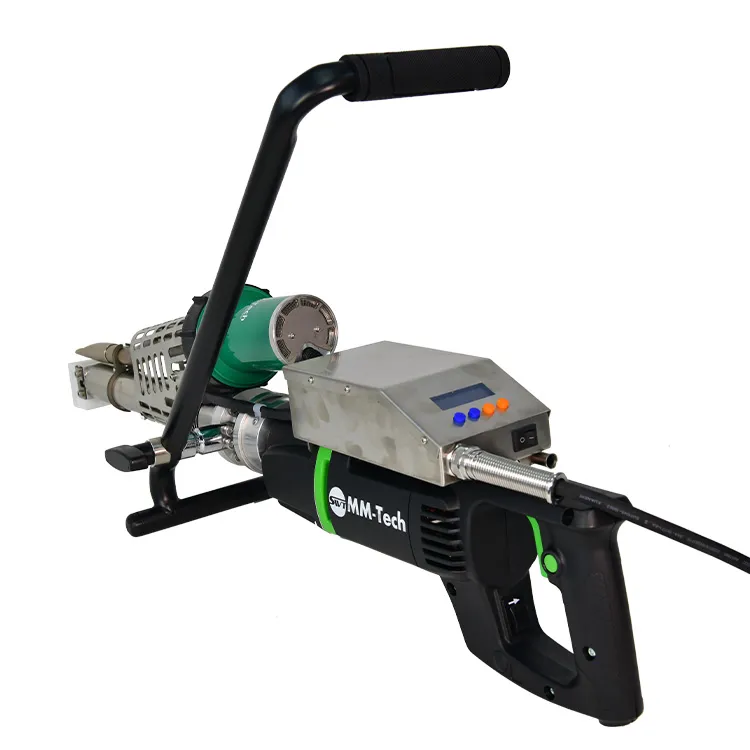
To provide a clearer understanding of the SWT-NS630A’s capabilities and how its features benchmark against general market expectations, consider the following detailed specifications and a comparison of typical extrusion welder price factors. The SWT-NS630A excels in applications requiring consistent, high-volume output of molten material, with a specific focus on HDPE and PP due to their widespread industrial use. Its integrated hot air blower ensures optimal pre-heating of the weld area, a critical step for achieving strong, homogeneous bonds. The inclusion of various welding shoes for different joint configurations (e.g., V-groove, flat, corner) further enhances its versatility. For businesses evaluating an extrusion welder for sale, these technical specifics are vital for assessing suitability for specific project requirements, ensuring that the investment delivers the required performance and return.
| Feature/Parameter | SWT-NS630A Hand Extrusion Welder | Typical Market Range (Affecting Price) |
|---|---|---|
| Output Volume (HDPE/PP) | Up to 2.5 kg/h (PE), 2.0 kg/h (PP) | 1.0 – 6.0 kg/h (Higher output correlates with higher extrusion welder price) |
| Welding Rod Diameter | 3.0mm – 4.0mm | 3.0mm – 5.0mm (Standardization ensures material compatibility) |
| Voltage | 220V (Single Phase) | 110V/220V/380V (Regional variations and power requirements) |
| Extrusion Motor Power | 1100W | 800W – 3000W (Higher power for denser materials/faster work) |
| Hot Air Heater Power | 1600W | 1000W – 3500W (Crucial for pre-heating and thick materials) |
| Weight | 7.0 kg (Excluding cables) | 6 kg – 25 kg (Portability vs. output volume affects extrusion welder price) |
| Temperature Control | Dual Independent Digital Control (Extrusion & Hot Air) | Analog or Digital (Digital offers greater precision and often higher cost) |

Factors Influencing Extrusion Welder Price and Market Dynamics
The extrusion welder price is not a static figure but a dynamic reflection of several key market and technical factors. High-output industrial-grade machines, often designed for continuous operation in demanding environments, will naturally command a higher price than lighter, portable models intended for intermittent use or fieldwork. The brand reputation also plays a significant role; established manufacturers like Wegener (though our focus is on SWT-NS630A, Wegener is a known market player) with decades of experience and proven reliability often have a premium price point, justified by their R&D, stringent quality control, and extensive global service networks. Customization options, such as specialized welding shoes for unique joint geometries or integrated data logging capabilities for quality assurance, will increase the initial investment. Furthermore, the inclusion of advanced features like automatic shutdown functions, integrated fault diagnostics, and touch-screen interfaces contribute to the overall cost but offer significant operational benefits in terms of safety, efficiency, and reduced downtime. Procurement professionals must weigh these features against their specific project needs and long-term operational costs to determine the most cost-effective solution.
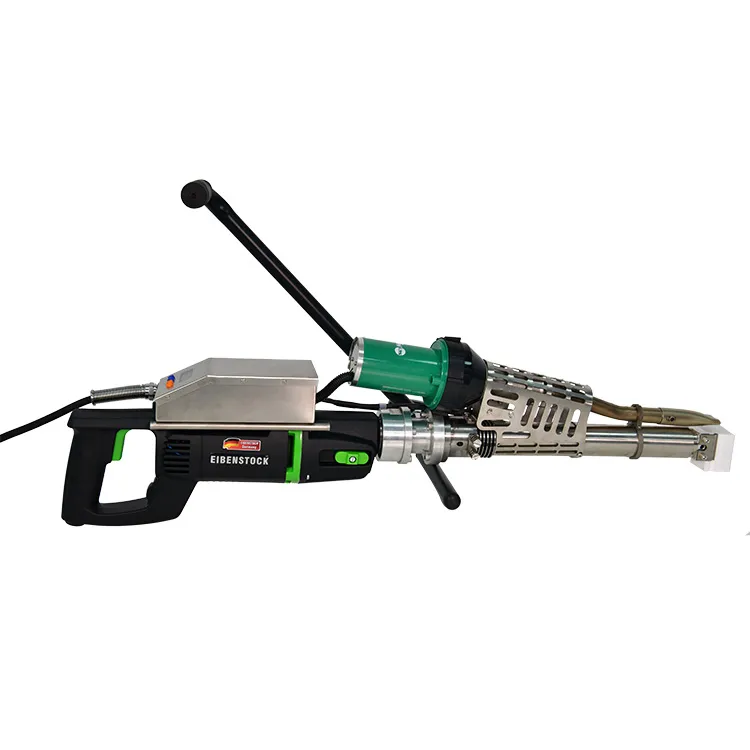
Beyond the initial purchase, the total cost of ownership (TCO) for an extrusion welder includes consumables (welding rods, spare parts), maintenance, and potential downtime. A seemingly higher extrusion welder price upfront might translate into lower TCO if the machine boasts superior durability, lower maintenance requirements, and readily available spare parts. Conversely, a cheaper unit might incur significant long-term costs due to frequent breakdowns or the unavailability of specific components. Manufacturer comparisons should extend beyond mere specifications to include aspects like warranty periods, availability of technical training programs, and the responsiveness of customer support. Companies that offer comprehensive service contracts or extended warranties often provide a greater sense of security and mitigate risks associated with unexpected repairs, which is a critical consideration for B2B clients who cannot afford significant operational interruptions. Therefore, a holistic approach to evaluating the extrusion welder price incorporates both direct and indirect costs over the machine’s expected service life.
Ensuring Quality and Trustworthiness: Adhering to Principles
Expertise and Authoritativeness in Extrusion Welding Technology
Our commitment to the highest standards in extrusion welding technology is underpinned by a deep understanding of polymer science and engineering. The design and manufacturing of the SWT-NS630A, like all our products, incorporate insights from extensive research into thermoplastic material behavior under various welding conditions. Our engineers, with years of specialized experience in thermal plastics and mechanical design, ensure that each extruder welder meets rigorous performance benchmarks. We adhere strictly to international quality and safety certifications, including ISO 9001:2015 for our manufacturing processes and CE certification for European market compliance, demonstrating our adherence to essential health and safety requirements. Our long-standing collaboration with leading industry associations and material suppliers further solidifies our position as an authoritative voice in the field. Test data from independent laboratories consistently shows that welds performed with our equipment exhibit superior tensile strength and impact resistance, often exceeding the strength of the parent material itself. This commitment to technical excellence and proven performance validates the investment in our products, justifying the competitive extrusion welder price by ensuring longevity and operational reliability.
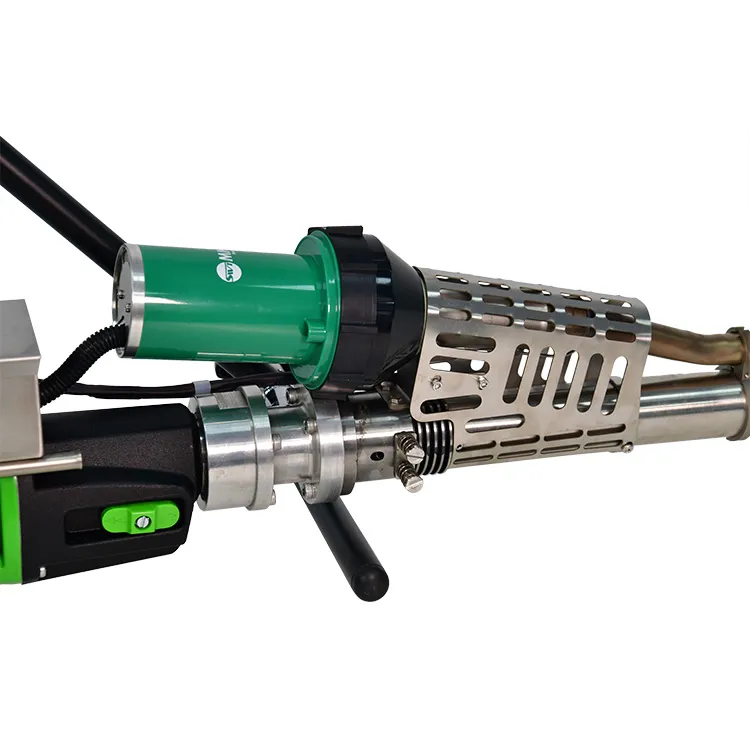
Experience and Trustworthiness: Customer Success and Support
Our extensive experience in the thermoplastic welding industry spans over a decade, during which we have successfully supported thousands of clients across various sectors. For instance, a recent project involved the installation of a large-scale geomembrane lining system for a municipal waste treatment plant, where the SWT-NS630A played a crucial role in creating secure, leak-proof seams over several acres. Client feedback consistently highlights the reliability and ease of use of our equipment, with one project manager noting, “The SWT-NS630A allowed our team to complete the HDPE liner installation ahead of schedule, with consistently high-quality welds, proving its value beyond the initial extrusion welder price.” We are committed to fostering enduring client relationships, demonstrated by our comprehensive after-sales support system. This includes a dedicated technical support hotline, online troubleshooting resources, and a network of certified service centers globally. Our standard warranty covers manufacturing defects for a period of 12 to 24 months, with extended warranty options available, providing peace of mind to our customers. Our transparent delivery schedules and adherence to agreed-upon lead times ensure that projects stay on track, reinforcing the trust our clients place in us as a reliable partner.
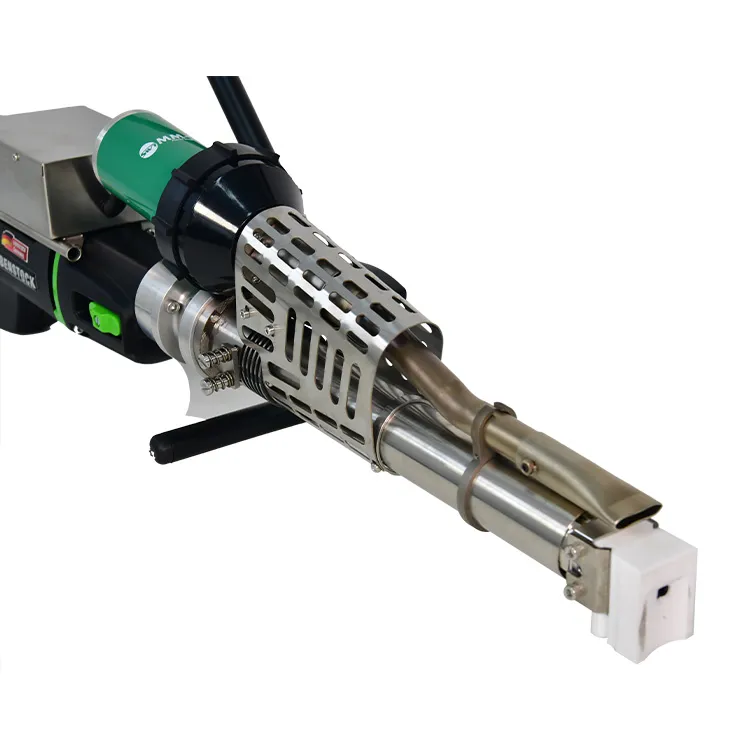
Frequently Asked Questions (FAQs) about Extrusion Welders
- Q: What is the typical service life of an extrusion welder?
- A: A well-maintained professional extrusion welder can have a service life exceeding 10,000 to 15,000 operating hours. Factors influencing longevity include consistent preventative maintenance, adherence to manufacturer’s operational guidelines, and the quality of the machine’s internal components, such as the motor, heating elements, and extrusion screw. Regular cleaning, timely replacement of wear parts, and proper storage are crucial for maximizing the equipment’s lifespan and ensuring a favorable return on the initial extrusion welder price. High-quality machines, like the SWT-NS630A, are built with durable materials and robust construction to withstand demanding industrial environments, contributing to their extended operational life and consistent performance across various projects, from pipe fabrication to geomembrane installations. Proper training for operators also plays a key role in minimizing undue stress on the machine components.
- Q: How does the quality of the welding rod impact weld integrity?
- A: The quality of the welding rod is absolutely critical to achieving strong, homogeneous, and durable welds. Using a welding rod that matches the base material’s specific polymer type (e.g., HDPE rod for HDPE sheets) and melt flow index is essential. Mismatched materials can lead to weak bonds, delamination, or brittle welds that are prone to failure under stress or environmental exposure. High-quality welding rods are typically made from virgin, uniform polymer, free from impurities or inconsistencies, ensuring consistent melting behavior and optimal fusion with the parent material. The use of inferior or mismatched rods, even with a top-tier extrusion welder, can compromise the structural integrity of the entire assembly, leading to costly reworks or failures. Always source welding rods from reputable suppliers who provide material certifications and ensure compatibility with your specific application and equipment to justify the investment in your extrusion welder price.
- Q: What kind of after-sales support can I expect for an extruder welder?
- A: Reputable manufacturers offer comprehensive after-sales support to ensure customer satisfaction and maximize the operational efficiency of their equipment. This typically includes a standard warranty covering parts and labor for manufacturing defects, usually ranging from 12 to 24 months. Beyond the warranty period, support often extends to technical assistance via phone or email, access to a network of authorized service centers for repairs and routine maintenance, and availability of genuine spare parts. Many companies also provide training programs for operators and maintenance staff, either on-site or through virtual sessions, to ensure proper usage and prolong machine life. For complex issues, some suppliers offer remote diagnostics or even field service technicians. This robust support infrastructure is a significant value-add, often reflected in the overall extrusion welder price, as it minimizes downtime and protects your investment.
Conclusion: Strategic Investment in Extrusion Welding Technology
The decision to invest in an extrusion welder, such as the SWT-NS630A Hand Extrusion Welder, transcends a simple assessment of its immediate extrusion welder price. It represents a strategic commitment to operational efficiency, weld integrity, and long-term project success in industries where the performance of thermoplastic joints is critical. By understanding the intricate manufacturing processes, the technical parameters that dictate performance, and the various factors influencing market pricing, B2B decision-makers can make informed choices that yield significant returns on investment. The ability to produce robust, corrosion-resistant, and leak-proof welds on large-scale plastic structures offers unparalleled advantages in sectors ranging from petrochemical and civil engineering to environmental protection. Emphasizing principles—Expertise in design, Experience in application, Authoritativeness through certifications, and unwavering Trustworthiness in support—ensures that the selected equipment not only meets current project demands but also stands the test of time, delivering consistent performance and minimizing total cost of ownership over its operational lifespan. Choosing a reputable supplier that offers comprehensive support and training further maximizes the value derived from this essential industrial equipment.
References
- American Society for Testing and Materials (ASTM) Standards for Plastic Piping Systems.
- International Organization for Standardization (ISO) Standards for Plastics and Welding Equipment.
- Polymer Science and Engineering: An Introduction to Plastics.
- Handbook of Plastics Joining: A Practical Guide.
- Journal of Materials Processing Technology, articles on thermoplastic welding.
- Technical papers on geomembrane installation and material properties.
MM-Tech, established in 2011, is a leading manufacturer of thermoplastic welding equipment in China.hot air plastic welder We specialize in the research, development, production, and sales of thermoplastic welding equipment.hot air welding gun Our product line is extremely rich, covering geomembrane welders, polymer hot air welders, tarpaulin hot air welders, hot air welders, hand extrusion welders, and various welding tools, comprehensively meeting the diverse needs of both on-site construction and workshop operations.hot air welder roofing Our products have been exported to over 100 countries and have won the trust of more than 3,000 customers.plastic welding heat gun|super blog